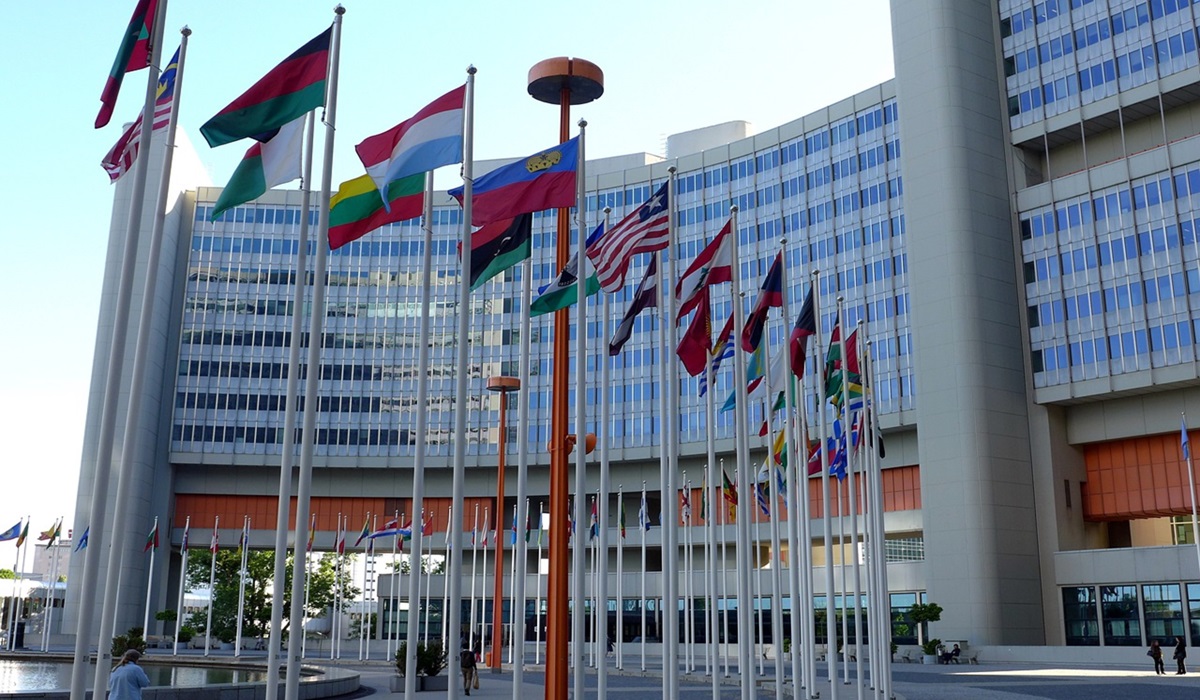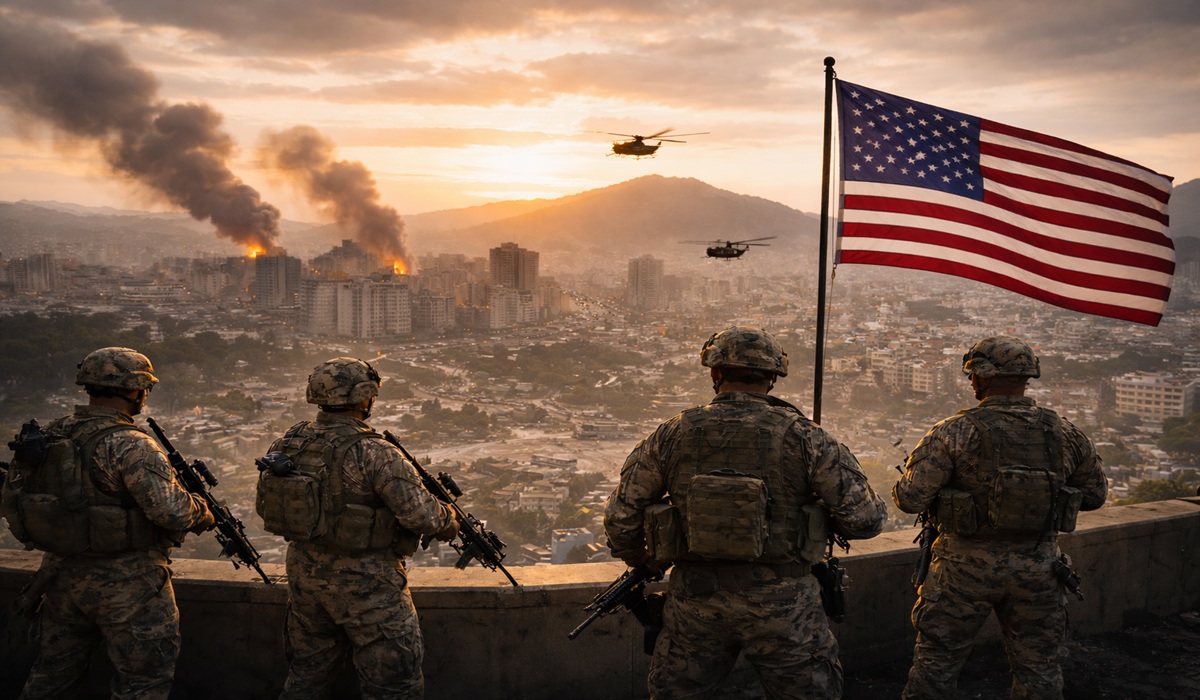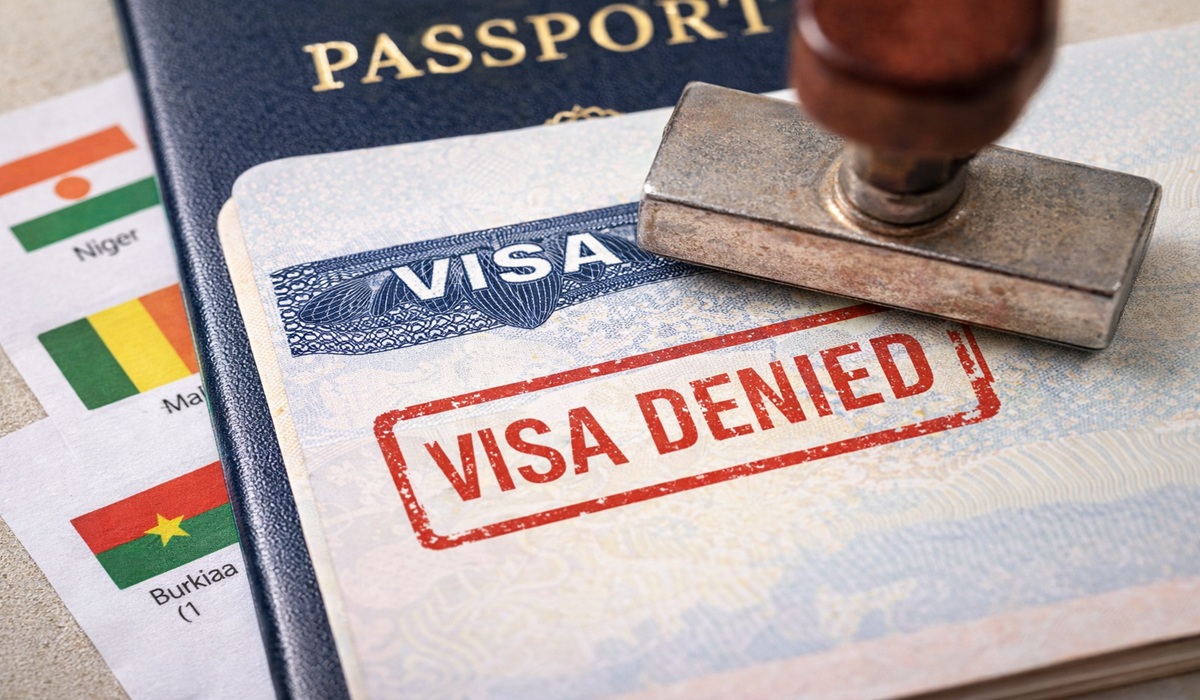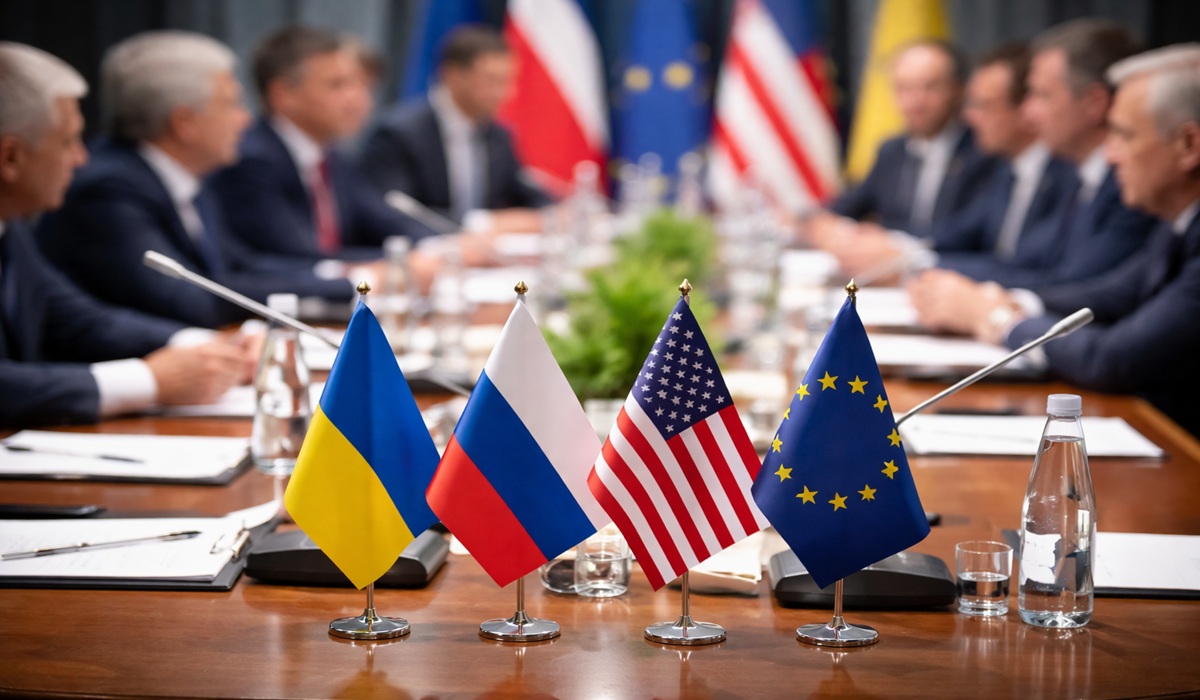When Fox News Host Jesse Watters Joked About Blowing Up the U.N., FCC Accountability Vanished
- TDS News
- Breaking News
- September 25, 2025

By Donovan Martin Sr, Editor in Chief
On September 23, 2025, the world watched as Donald Trump appeared before the United Nations General Assembly in New York. His entrance was marked by an embarrassing hiccup: the escalator carrying him and the First Lady froze halfway, forcing them to awkwardly shuffle forward. Then, during his remarks, the teleprompter repeatedly malfunctioned, leaving the President pausing, gesturing, and visibly irritated. In a moment tailor-made for late-night comedy, conservative media instead found fuel for outrage.
Fox News host Jesse Watters seized on the event, turning his frustration into a comment that instantly raised eyebrows. On air, he declared, “What we need to do is either leave the U.N. or we need to bomb it.” He didn’t stop there. In subsequent remarks, he half-joked about bombing the United Nations headquarters, gassing it, or simply tearing it down. In the banter that followed, some of his co-hosts laughed, others nervously deflected, but none treated the comment with the seriousness it deserved.
In any other context, if an ordinary American threatened to blow up a building filled with world leaders, they would find themselves questioned by the FBI or Secret Service, maybe even charged. Yet Watters — a prime-time anchor with millions of viewers — faced no such consequence. This selective tolerance reveals something deeply disturbing about how America enforces accountability for speech that flirts with violence.
The immediate backdrop matters. Trump had railed afterward that the U.N. appearance was “sabotage” — the escalator stall, the frozen teleprompter, the awkward pauses. Conservative media echoed the idea that someone inside the U.N. or hostile to Trump had engineered the glitches. Into this climate of suspicion stepped Watters, framing the U.N. not merely as inept or corrupt but as an institution unworthy of existence. His exact phrasing is crucial: “Either we leave the U.N. or we bomb it.” He embellished: bomb the headquarters, gas it, demolish it, replace it with apartments. Delivered with smirking bravado, the words were clearly intended as provocation. Yet intent doesn’t erase impact. Advocating the destruction of an occupied building in Manhattan, one that houses leaders and staff from around the globe, crosses a line most Americans instinctively recognize as dangerous.
This is not the first time inflammatory rhetoric has pushed public figures into hot water. But the disparity in responses is glaring. Consider comedian Kathy Griffin. In 2017 she posed with a photo of herself holding a grotesque prop meant to resemble Donald Trump’s severed head. The backlash was immediate. She was fired from gigs, banned from venues, subjected to relentless online abuse, and interrogated by federal agents. She has since described the experience as life-ruining, her name permanently associated with a single photo.
Or Jimmy Kimmel. When he quipped about the hypothetical assassination of conservative activist Charlie Kirk, the fallout was swift. His show was pulled off air for days, advertisers recoiled, and his network scrambled to issue apologies. Even though Kimmel’s comment was flippant and not a call to action, the disciplinary hammer fell hard.
Now compare those cases to Jesse Watters. Despite advocating something far more concrete — the bombing of a real-world, occupied building — he has thus far faced no public investigation, no suspension, no advertiser revolt. The double standard is undeniable.
The defense offered by Watters’s supporters is predictable: free speech. He was joking, they argue. It was satire. But that same defense was not enough for Griffin, nor for Kimmel, nor for countless lesser-known individuals who have been visited by law enforcement for posting edgy jokes online. What we see here is the weaponization of the First Amendment by those who know how to skirt its boundaries. Right-wing figures often push rhetoric to extremes, daring critics to call it a threat, only to retreat behind the shield of “just a joke” when confronted. Meanwhile, artists, comedians, and left-leaning commentators are routinely disciplined, sometimes to career-ending effect. This is not to excuse the Democrats, who themselves are quick to censor speech when politically convenient. But Watters’s remarks highlight a core hypocrisy: laws and norms applied unevenly, depending on which tribe you belong to.
The problem isn’t just hypocrisy. Words like Watters’s normalize the idea of violence against institutions, even flawed ones like the U.N. The United Nations may indeed be a lumbering, duplicative bureaucracy, often criticized for corruption, inefficiency, and empty posturing. Many Americans legitimately believe the U.S. contributes too much money for too little benefit. But calling for its demolition with bombs is not a critique — it’s reckless incitement masquerading as banter.
When violent language becomes normalized, it trickles into mainstream discourse. It lowers the threshold for what counts as acceptable commentary. It emboldens extremists who may take the words literally. And it chips away at the notion that civic disagreement can exist without flirtation with violence.
The lack of accountability here reflects a deeper rot in American institutions. Regulators like the FCC have been toothless in dealing with political cable news, wary of trampling on constitutional protections. Networks like Fox understand their audience rewards outrage and are unlikely to punish their hosts for saying the unsayable. Law enforcement, mindful of political optics, hesitates to investigate right-wing figures for fear of fueling claims of persecution. Yet when comedians or liberal commentators have crossed similar lines, the machinery of discipline has sprung to life. It’s this inconsistency that erodes public faith. People do not expect perfection from their institutions. But they do expect fairness. When some people lose their livelihoods for rhetorical missteps while others skate past clear transgressions, justice looks arbitrary — or worse, rigged.
Accountability doesn’t necessarily mean prosecution. Nor should America slide into criminalizing jokes or clumsy hyperbole. But consistent standards are needed. Networks should apply clear policies about violent rhetoric, regardless of political alignment. Advertisers should hold all hosts to the same level of responsibility, whether on Fox or ABC. And law enforcement should at least acknowledge when comments stray into territory that would trigger investigations if uttered by a private citizen. The goal isn’t censorship. It’s parity. The rules, whatever they are, should apply equally.
Beyond institutions, ordinary citizens have a role. Consumers must recognize when a line has been crossed and call it out, even if they agree with the politics of the speaker. The public must refuse to normalize rhetoric that suggests violence as a punchline. This doesn’t mean defending the United Nations as sacred. It doesn’t mean silencing criticism of globalist institutions. It means holding ourselves, and our media, to a standard where we can argue, mock, and dissent without dressing violent fantasies up as jokes.
Jesse Watters’s remarks were reckless, dangerous, and revealing. That a mainstream host could openly suggest bombing the United Nations headquarters — on live television, without consequence — underscores the growing gap in how America applies its standards of accountability. Kathy Griffin’s photo cost her her career. Jimmy Kimmel’s offhand joke cost him his show, even if briefly. But Jesse Watters? He carries on as if nothing happened.
This is the definition of unequal enforcement. It is the rot at the heart of America’s political discourse: speech weaponized by one side, punished ruthlessly on the other, leaving the principle of free expression not as a shared value but as a partisan tool. If America is to remain a country where laws and norms mean anything, then the rules must apply to everyone — comedian and pundit, liberal and conservative, president and protester alike. Otherwise, we are left with a system where speech is not free, but selectively privileged. And that is the most dangerous outcome of all.








